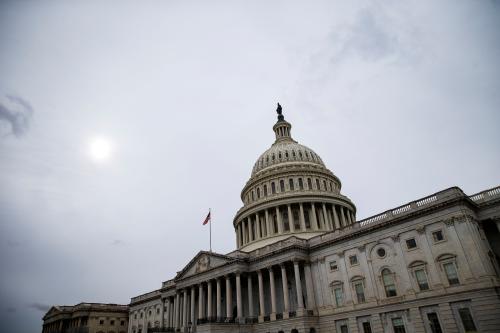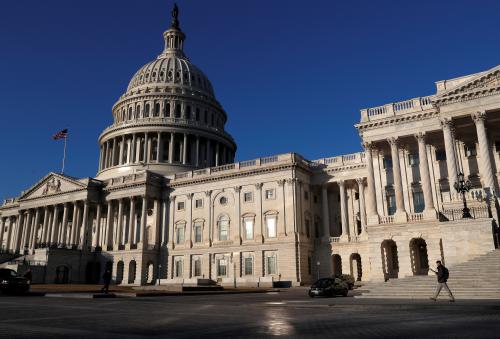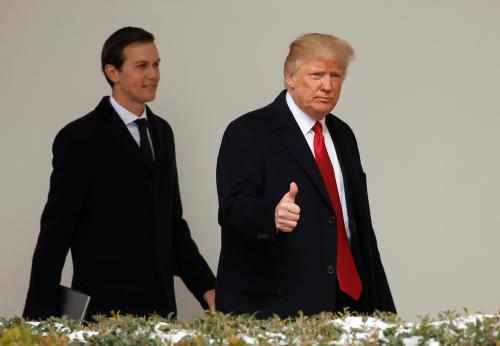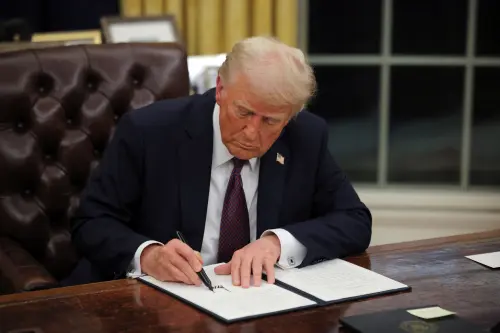In February, Congress reached a long-awaited budget deal to set overall levels of discretionary federal spending for this year and next. Included in the package was language establishing a new Joint Select Committee (JSC) on Budget and Appropriations Process Reform. The 16-member panel—comprised of equal numbers of House and Senate Republicans and Democrats—is charged with developing recommendations and legislative language to improve Congress’s fiscal functioning by November 30, 2018. The committee convened for the first time on March 8, with additional meetings and public hearings expected in the coming months.
Will the committee succeed? With only its first meeting under its belt, it’s too soon to say. The JSC has a relatively short amount of time to complete its task, and that window includes this fall’s midterm elections. Success will depend, in part, on just how much the panel tries to tackle. Indeed, some budget analysts, like the Bipartisan Policy Center’s Bill Hoagland, have recommended the panel take a focused approach, tackling just a few issues.
Whether the committee tries to go big or keeps its focus narrow, committee members would be wise to consider the incentives facing various groups of legislators. These incentives are central to understanding both how Congress reached its current state of budgetary dysfunction, and how various changes may, or may not, improve the functioning of the process. Consider first the motivations of individual rank-and-file members of both the House and Senate. On one hand, members have an incentive for the appropriations process to run predictably. Even if the process isn’t a top of mind issue for most voters, many legislators will have important voices in their districts—research universities, government contractors, state and local government officials—for whom certainty is important.
At the same time, rank-and-file legislators may also value a process that allows them to have input into the content of the bills. Historically, floor amendments to spending bills have represented an important way members are able to exert influence on spending measures. But contentious debates over amendments have contributed to leaders’ decision to keep some bills off the floor in recent years, especially in the House. Rank-and-file members, then, may be facing competing incentives: a desire to have a predictable process on one hand, and an incentive to use the process to achieve certain goals on the other. For reforms to be successful, they will either have to thread this needle, or change the underlying incentives that drive members to use spending bills to achieve political ends.
There are also institutional incentives with which reformers will have to contend. Of the sixteen members of the JSC, seven sit on either the House or Senate Appropriations Committees, and six are members of the House or Senate Budget Committees. (One, JSC co-chair Rep. Steve Womack (R-Ark.) sits on both the House Budget and House Appropriations.) Both sets of members may be motivated to at least maintain, if not expand, their respective panels’ influence. The potential for jurisdictional conflict is not a new hurdle for budget process reform. Indeed, when the modern budget process was created in 1974, it was layered on top of the existing authorization-appropriations process in part so that no committees would lose their existing basic jurisdiction. If the JSC is to pursue reform ideas that would affect the current committee balance of power, such as strengthening the Budget Committees, it will need to navigate these competing incentives.
As the JSC process gets under way, there are indications that both the broader budget reform community and panel members themselves are taking seriously these questions of incentives. One new major set of budget process reform recommendations from the Convergence Center for Policy Resolution cites as one of its key themes the fact that “the one true driver of Congressional action [is] the potential outcome of the next election.” According to press reports, among the topics covered by the JSC during its first meeting was the prospect of changing the start of the government’s fiscal year from October 1 to January 1, with Rep. Womack arguing that the desire to leave Washington in advance of the holidays might increase members’ incentive to finish their work. Congress’s recent history with deadlines suggests Womack may be overly optimistic. But in a world where members’ political incentives drive their behavior, taking account of those motivations is, at least, the right place to start.
The Brookings Institution is committed to quality, independence, and impact.
We are supported by a diverse array of funders. In line with our values and policies, each Brookings publication represents the sole views of its author(s).







Commentary
The politics and tradeoffs of congressional budget process reform
March 19, 2018